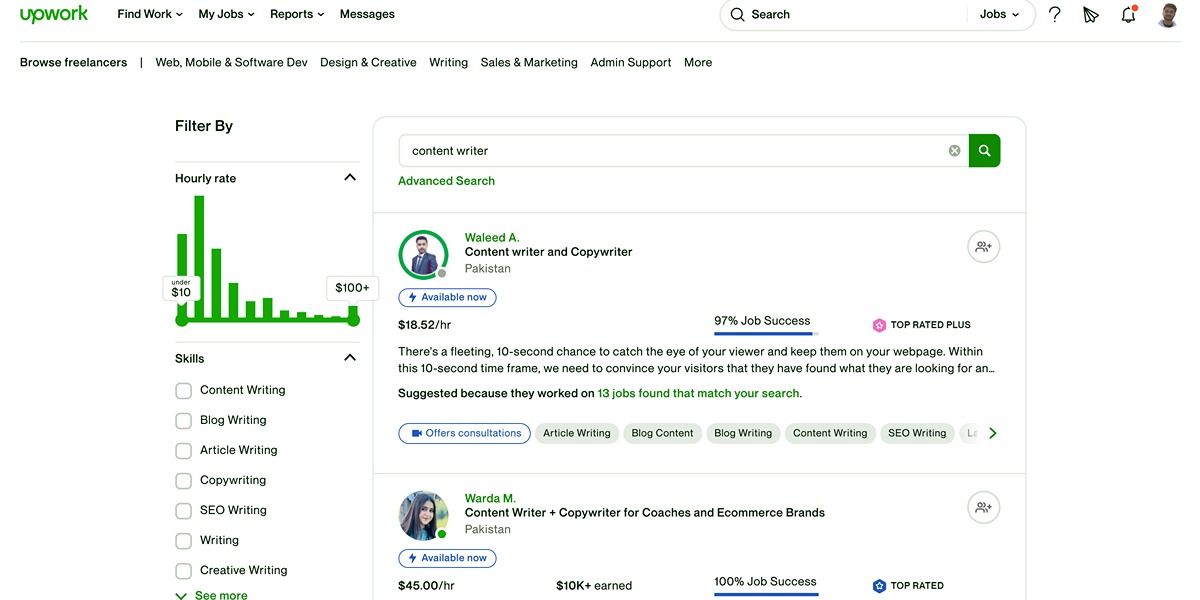Most freelancers often find it difficult to quantify the value that they offer to clients. This, coupled with the fact that a high rate may mean a loss of business, results in many freelancers selling themselves short.
And while offering discounts to win over a new client may seem tempting at first, it can end up causing your venture more harm than good. From difficulties scaling up in the future to lowering the perceived value of your work, here are a few reasons you should never underprice your services as a freelancer when trying to bring new clients on board.
1. Lower Perceived Value of Your Work
The price you charge as a freelancer is your way of conveying how much your services and skills are truly worth. It is a big element of your personal brand, and your rates play a key role in developing a perception among your clients about your value.
Easily lowering your prices during a negotiation may help you win a client, but it will leave a permanent impression on your new customer that your work just isn't that valuable. They may even shy away from showing any respect for your time and effort.
Worse, their lack of respect may end up being conveyed in the way they review you and talk about you in the marketplace. This means you'll end up getting referred to clients who are only willing to prioritize costs. And the cycle of charging low rates will begin once again.
A good way around this is to never go below a certain minimum rate that you think is sufficient compensation for your efforts. You can then work on certain USPs that your personal brand offers. Learn how to properly pitch these USPs to a new client, and use them to justify why you're worth a higher price.
2. May Be Off-Putting to High-Ticket Clients
Underpricing your services as a freelancer can also have a negative impact on your ability to attract and retain high-ticket clients. These are buyers who expect a certain level of professionalism, expertise, and confidence from freelancers, and they're willing to pay top dollar for it. Having a history of quoting low rates will convey your lack of self-confidence.
Furthermore, high-ticket clients are often looking for talent who own certain tools or have premium certifications to their name. According to them, it'd be natural for such contractors to charge higher rates to recover their investment. But quoting low prices will give off the perception that you're not properly equipped for the role.
Setting your freelance rates the right way takes some time, but you can get started by researching job boards and freelancing platforms, and seeing what other freelancers are charging. Be sure to take their level of experience and skill into consideration when using this data to price your own services.
3. Difficulty Raising Prices in the Future
One of the most important things to remember as a freelancer is that getting a raise in this industry is very hard. This is because the saturated market makes replacing you fairly easy.
While you can always negotiate a higher freelance rate later, this will only work with clients who value you. Buyers who only dealt with you for your low rates in the first place will immediately discontinue the partnership when you remove your discounts from the table.
It can be discouraging when pay raises are not on the table. But you can counter this by constantly upskilling and delivering better customer service to your freelance clients. This will make replacing you hard, which in turn will let you negotiate and sustain a higher rate.
4. Leads to Burnout and Lack of Motivation
Let's not forget the more direct consequence of charging low freelance rates: fewer profits. Since your profits won't be increasing in line with your efforts, you'll be discouraged to maintain your work quality, let alone strive towards improving it or growing your business.
And it's not like you'll have the time to work on expanding your business in the first place. Charging low rates will mean you'll have to take up more low-paying projects to supplement your income. This will further impact the quality of your work and ruin your work-life balance.
A better approach would be to establish a minimum rate for your services. Then, you must not go below this rate even if it means loss of business. There's a high chance that you'll have some extra time on your hand when you get selective with your projects.
You can utilize this extra time to learn new skills or improve the ones you already have. Upskilling doesn't necessarily require a monetary investment. There are various free online learning platforms to help you get started. A broader and improved skill set will help you deliver better quality work and let you upsell to your existing clients.
5. Difficulty Networking
Networking is crucial for building a strong client base, getting exposed to new opportunities, and scaling up your freelance career. When you underprice your services, you'll attract clients who prioritize low-cost solutions over long-term relationships.
You'll either fail to build a network of contacts altogether or only interact with industry people whose cost-saving priorities don't align with your goals. Since you'll be overworked with a multitude of low-paid projects, you may also be unable to properly engage with your contacts. As a result, you may miss out on potential leads or developments in your industry.
Establish Your Worth By Setting the Right Freelance Rates From the Start
Lowering prices is a common marketing strategy that many new freelancers adopt in hopes of booking new customers. But when you underprice your services, clients will likely perceive your work to be of a lower quality. New clients may be skeptical of hiring someone who doesn't value themselves.
Once you set a low rate, it is also very difficult to get it increased in the future. Being stuck in a cycle of low pay can demotivate you and cause burnout due to overworking. You will thus have less time to grow your business and network towards new opportunities.






